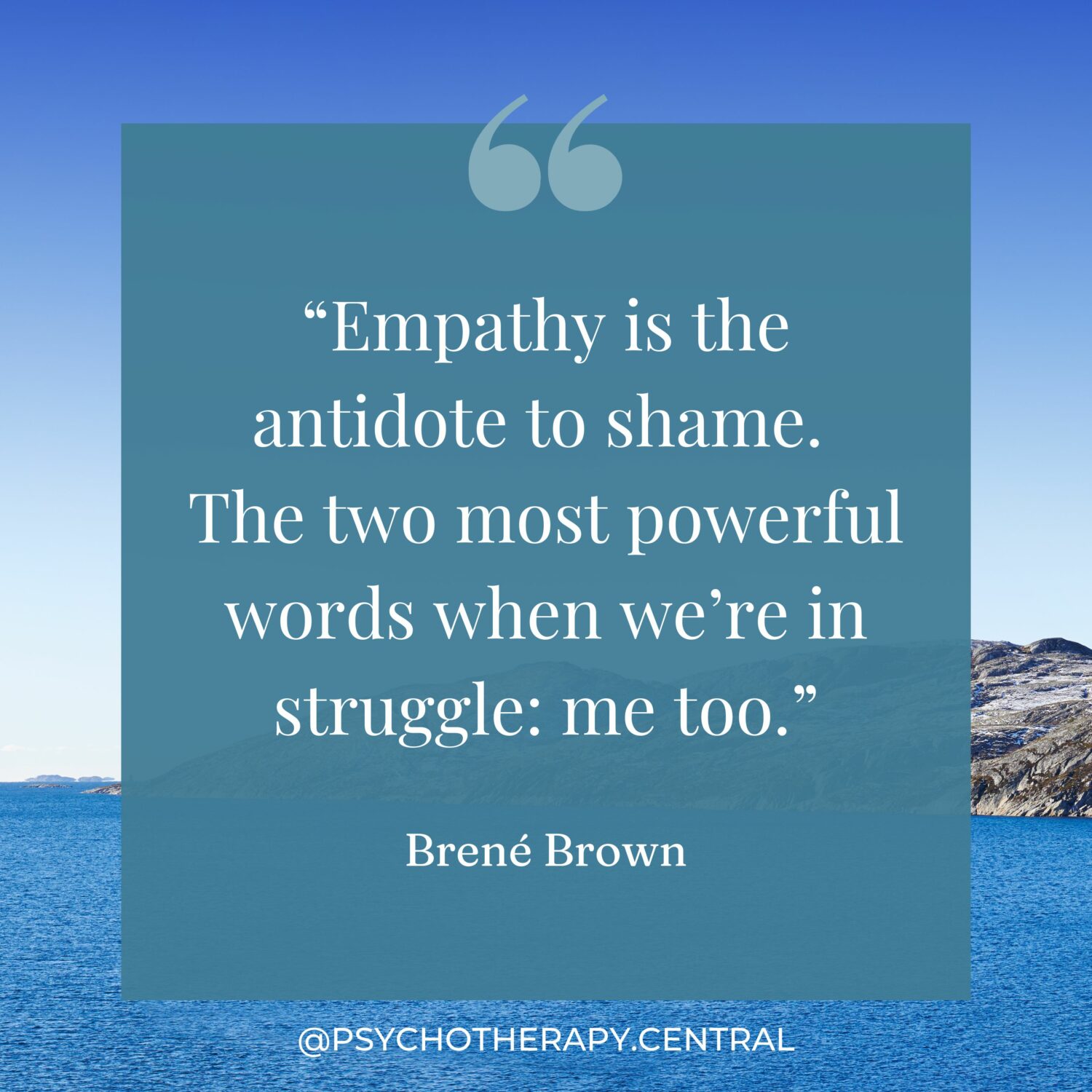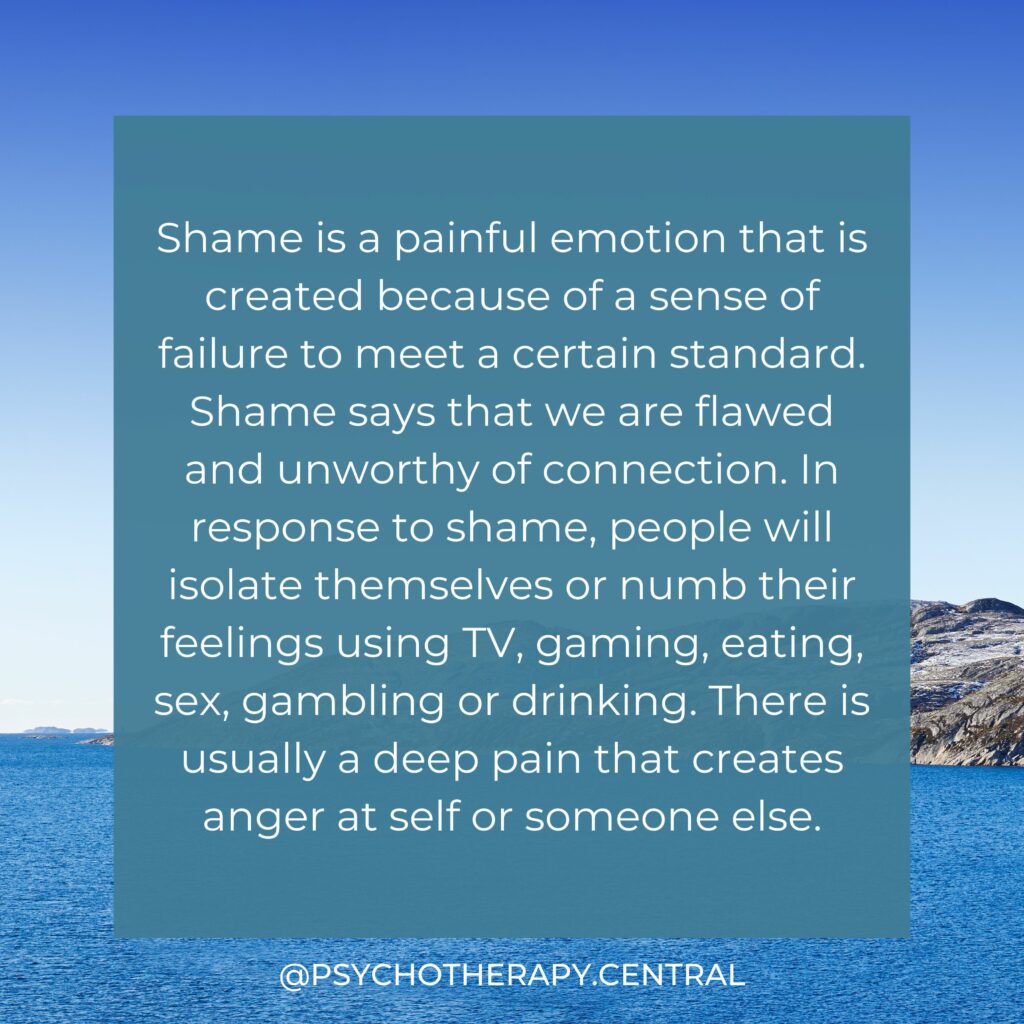Shame is a painful emotion that is created because of a sense of failure to meet a certain standard. Shame says that we are flawed and unworthy of connection. In response to shame, people will isolate themselves or numb their feelings using TV, gaming, eating, sex, gambling or drinking. There is usually a deep pain that creates anger at self or someone else.
In her ground-breaking research, Brené Brown explains the power of EMPATHY in the face of shame. She says that shame needs us to believe that we are, at our core, unworthy and deserving of isolation. Shame will die if we don’t buy into it and instead talk about the shame with a trusted friend who can listen with empathy. It is about allowing another to be with us to acknowledge our shared humanity.
So, what might that conversation sound like?
Scenario:
I’m 35, and I’ve been trying to get pregnant for 5 years. I have started IVF treatment, and I have put on a ton of weight. I feel disappointed in my body and shame about my infertility and weight gain.
My friend, who has a young child, is a great listener and generally very empathetic. I choose her to talk to.
Conversation:
‘Jill, I have really been struggling. You know how long I have been trying to get pregnant. It is so painful; I have started to give up on my body and lose faith in myself as a woman. I have started IVF because I don’t know what else to do. The drugs give me huge mood swings, and I have put on so much weight. I have been in a huge shame pit for the last two weeks.’
‘Oh, Jill, I have heard about how hard IVF can be, and I get how the weight can affect your self-confidence. Honestly, I have been feeling really down with myself about my post-baby weight too. I’m with you on this journey. You are not alone’.
Being empathetic can take practise. It is about walking alongside and hearing how the world is for them.
I hope this is useful,
Love Jen
____
Reference: Brown, B. (2012). Daring Greatly. Penguin Books: UK.
____


